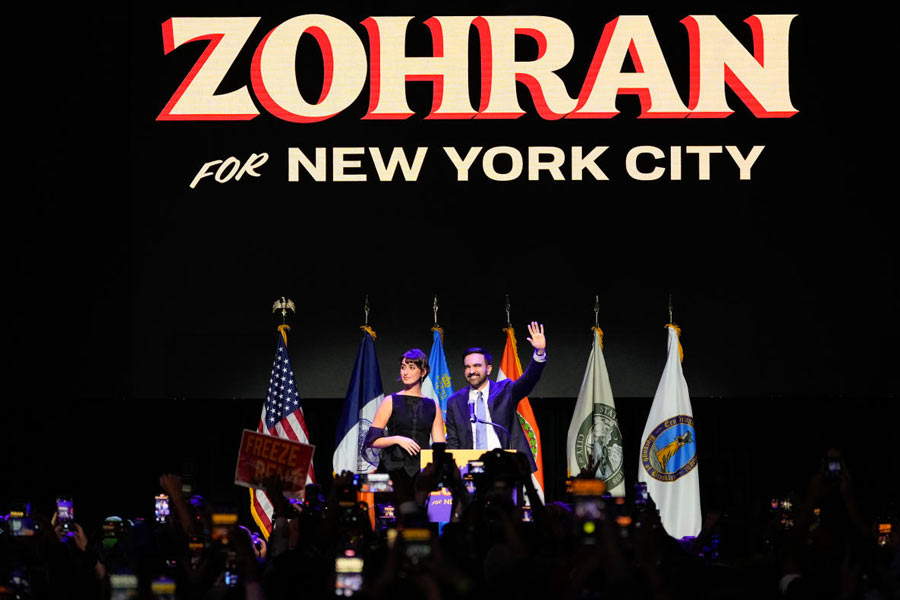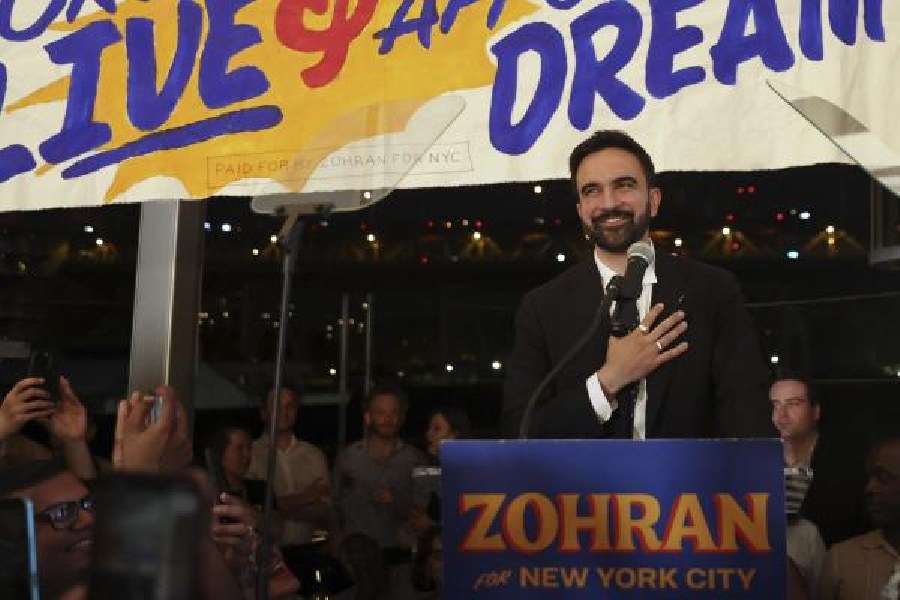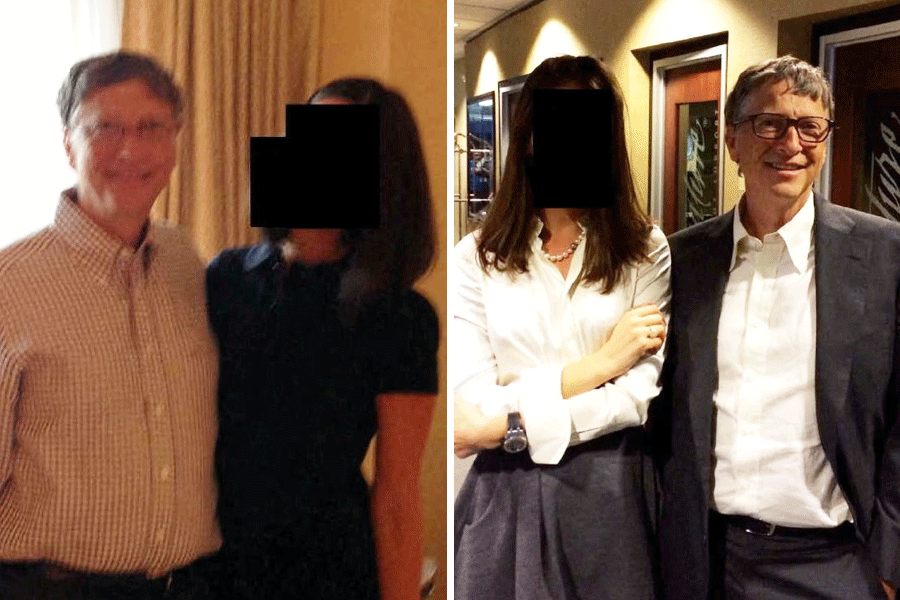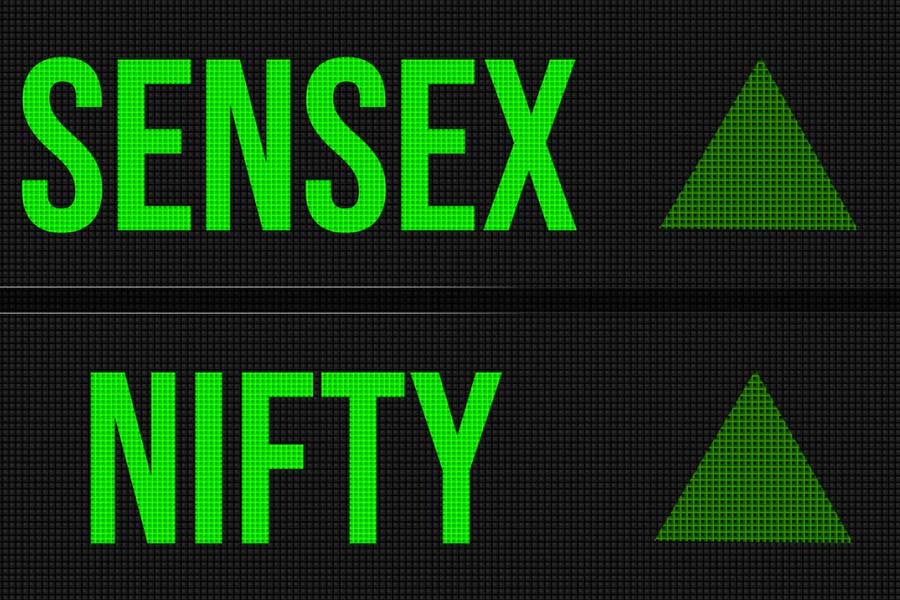New York City’s mayor-elect Zohran Mamdani has opened a new front in American politics, quoting Jawaharlal Nehru to frame his victory as a historic turning point and challenging US President Donald Trump head-on in what promises to be one of the most combative relationships between City Hall and the White House in decades.
“Standing before you, I think of the words of Jawaharlal Nehru — a moment comes, but rarely in history, when we step out from the old to the new,” Mamdani declared to thunderous applause at his victory rally. “Tonight, we have stepped out from the old into the new.”
The 34-year-old Democrat, who becomes New York’s first South Asian and Muslim mayor, used the reference to signal both a generational break in city politics and the dawn of a more confrontational, left-leaning era.
Looking squarely into the camera, he addressed the President directly: “Donald Trump, since I know you’re watching, I have four words for you — turn the volume up.”
The line drew a roar from the crowd, encapsulating the new mayor’s defiant stance toward a president whose celebrity was forged in the very city now set to challenge his power.
Mamdani’s resounding win toppled what he called a “political dynasty” in New York, defeating former state governor Andrew Cuomo and Republican nominee Curtis Sliwa in a race that symbolised an insurgency within the Democratic establishment.
“Friends, we have toppled a political dynasty,” Mamdani said, “and let tonight be the final time I utter Cuomo’s name as we turn the page on a politics that abandons the many and answers only to the few.”
The scale of the Democratic sweep — capturing three key races in the first major electoral test since Trump’s return to power nine months ago — has given the party a shot of energy ahead of next year’s congressional contests.
Mamdani, one of the most prominent figures in that new cohort, has made no secret of his intent to pit his progressive agenda against the deeply conservative policies coming from the Trump administration.
“If anyone can show a nation betrayed by Donald Trump how to defeat him,” he told supporters, “it is the city that gave rise to him.” He added that the way to terrify “a despot” was not through accommodation but by dismantling the very conditions that allow such figures to thrive.
For Trump, the challenge from Mamdani is already politically loaded. The President, who built much of his brand on the New York skyline before ascending to national office, had warned before polling day that the city could lose billions in federal funding if voters chose what he dismissively called “a communist mayor.”
Speaking to CBS’s 60 Minutes days ahead of the election, Trump said: “If you have a communist running New York, all you’re doing is wasting the money you’re sending there.”
Such threats appear only to have emboldened Mamdani, who placed countering Trump’s immigration clampdowns and corporate tax breaks at the heart of his campaign.
“To get to any of us, you’ll have to go through all of us,” he warned, pledging that New York would remain “a city built by immigrants, powered by immigrants, and as of tonight, led by an immigrant.”
Mamdani laid out plans to lead what he called “the most ambitious agenda to tackle the cost-of-living crisis since the 1940s.” His programme — including a citywide rent freeze, universal childcare, and expanded labour protections — reads like a populist manifesto aimed directly at the working class.
He vowed to “hold bad landlords to account,” invoking Trump by name as a symbol of wealthy real-estate interests whose influence, he said, has hollowed out the city’s sense of fairness.
“The Donald Trumps of our city have grown far too comfortable taking advantage of their tenants,” Mamdani declared. “We will put an end to the culture of corruption that has allowed billionaires like Trump to evade taxation and exploit loopholes.”
He declared: “We refuse to let them dictate the rules of the game anymore. Together, we will usher in a generation of change.”
Born to Ugandan-Indian parents and raised in New York’s Queens borough, Mamdani’s rise represents a remarkable journey from community organiser to the most powerful municipal office in America.
His background as the son of immigrants shapes both his politics and his symbolism. “We won because New Yorkers allowed themselves to hope that the impossible could be made possible,” he told the jubilant throng. “Politics is not something done to us — it is something we do.”
For many observers, Mamdani’s invocation of Nehru — drawing on India’s independence-era optimism — struck a deeply personal chord that transcended geography. In echoing the words of India’s first prime minister, the new mayor framed New York’s political renewal as part of a broader struggle against authoritarianism across continents.
As the night ended with chants echoing through the streets of Brooklyn, Mamdani left his supporters with a sweeping promise: “New York can once again be the city that turns the impossible into the inevitable.”











